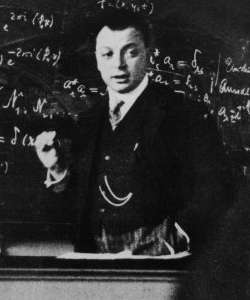Physics 101
- Introduction to Mechanics
- Work, Energy, and Power
- Momentum and Collisions
- Introduction to Gravity
- Electromagnetism
- Waves and Sound
- Introduction to Quantum Mechanics
- Quantum Theory and the Atom
- Quantum Mechanics Applications and Limitations
Quantum Theory and the Atom
Understanding Quantum Spin

Quantum mechanical principle that two identical fermions cannot occupy the same quantum state simultaneously.
Quantum spin is a fundamental concept in quantum mechanics that describes the intrinsic angular momentum of a particle. Unlike classical spin, quantum spin does not involve a physical spinning motion. Instead, it is a purely quantum mechanical property that has no classical analog.
Introduction to Quantum Spin
Quantum spin was first discovered when scientists noticed that electrons, protons, and neutrons behaved as if they were spinning, even though they are point particles with no physical size. This "spin" is a form of intrinsic angular momentum that is a fundamental characteristic of these particles.
Spin Quantum Number
The spin quantum number, often denoted by 's', is a quantum number that describes the intrinsic angular momentum of a particle. For electrons, protons, and neutrons, the spin quantum number is 1/2. This means that these particles are fermions, a type of particle that follows the Pauli Exclusion Principle.
Spin Magnetic Quantum Number
The spin magnetic quantum number, often denoted by 'ms', describes the orientation of a particle's spin in a magnetic field. For a particle with a spin quantum number of 1/2, the spin magnetic quantum number can be +1/2 or -1/2. These two values correspond to the two possible orientations of the particle's spin: "spin up" and "spin down".
Stern-Gerlach Experiment
The Stern-Gerlach experiment was a key experiment in the early development of quantum mechanics. It demonstrated that particles with spin can only have discrete, quantized orientations of their spin. In the experiment, silver atoms were sent through a non-uniform magnetic field, and they split into two distinct beams, corresponding to the two possible spin orientations. This was a clear demonstration of the quantization of spin.
Spin and Its Implications in Quantum Mechanics
Quantum spin has profound implications in quantum mechanics. It is responsible for the Pauli Exclusion Principle, which states that no two fermions can occupy the same quantum state simultaneously. This principle explains a wide range of phenomena, from the structure of the periodic table to the stability of matter.
In conclusion, quantum spin is a fundamental and fascinating aspect of quantum mechanics. Despite its name, it does not involve any physical spinning motion. Instead, it is a purely quantum mechanical property that has profound implications for our understanding of the microscopic world.